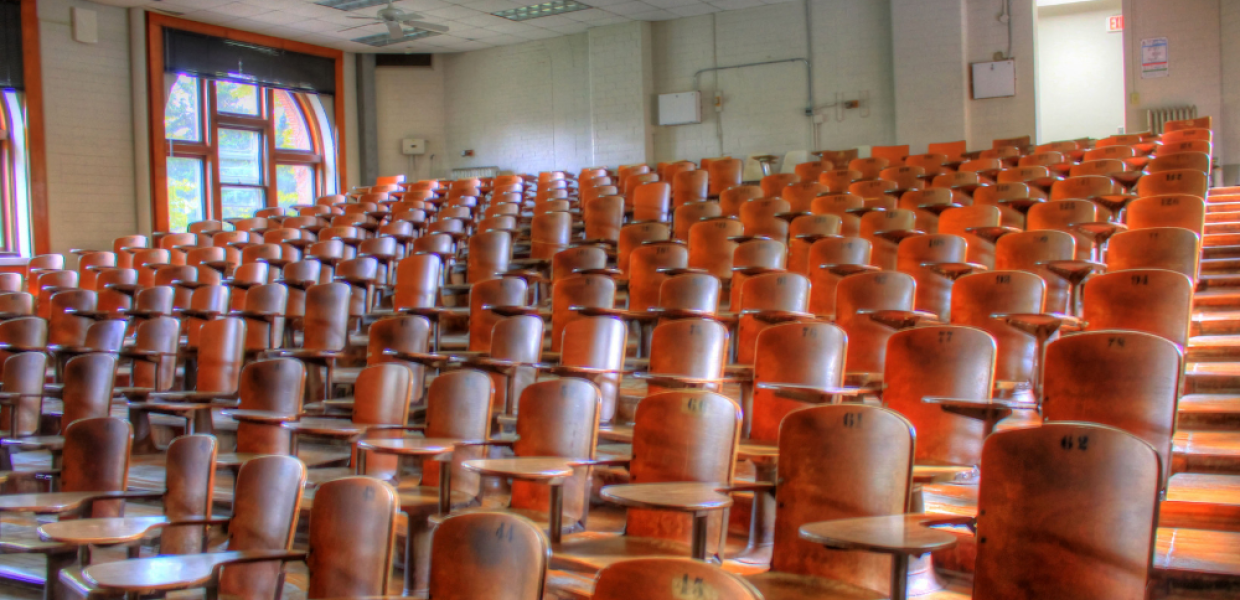As a baby boomer, I believe we have a responsibility to set an example for the generations who follow us. However, none of us can do this alone. The past few years have been tumultuous times for our country and the divisiveness that we see in the halls of government is focused more on being heard and less on finding solutions.
The rhetoric of divisiveness is also present on college campuses and amplified by the prevalence of mobile devices and social media. While many protests on campus are justified by current events, some of the activism seems misguided and misplaced. Younger people seek change and influence, but they never seem quite sure what it looks like or how to achieve it. Furthermore, change isn’t always about being right or wrong, but about finding lasting, sustainable solutions. Instead, some institutions of higher learning are fueling dissent in destructive ways, making it more difficult for constructive dialogue. Mobile devices and social media only seem to exacerbate the troubles on college campuses.
Last year, students from Reed College disrupted several classes because they objected to curricula focusing on the writings of historical figures such as Aristotle and Plato. The students felt the curricula was “too white” for the academy and demanded that these mandatory classes be changed to include more diverse thought-leaders from history.
While plenty of historically significant thought-leaders could be featured, the students who disrupted classroom after classroom with shouts, rants, threats and placards did themselves and their fellow students a disservice by not making an academic case for their assertions.
By imposing their abusive actions on students and faculty who were in these classes, they did what they claimed the administrators at Reed College were doing to them — forcing people to do something against their will. Adding fuel to the fire was a wave of negative posts on social media platforms, often launched from mobile devices under cover of anonymity.
College campuses for generations have been safe havens for protests leading to critical societal changes. Boomers often led these protests in the '60s and '70s, contributing to the end of apartheid and foreign wars, but also assisting in the establishment of ethnic studies departments and affirmative action programs.
I was part of many of these on-campus protests and rallies. Therefore, as the student body president of California State University, Northridge, I saw value in drawing attention to important causes through demonstrations, rallies, and open forums.
My approach, however, was to preserve the academy as a “safe haven” for all students, faculty, administrators, alumni and external speakers. Therefore, when a small group of UC Berkeley students prevented conservative political commentator Ann Coulter from speaking on campus, I saw this as a missed opportunity for the broader university community.
While I never shied away from a protest rally to expose the myriad of inequities and disparities that plagued our communities during my tenure in college, I also worked actively to protect the rights of others (whose positions differed from mine) to speak freely and openly on campus, which would have included individuals such as Ms. Coulter. I do draw a line on speakers who espouse physical or emotional violence and abuse, but firmly believe postsecondary institutions should always be safe places for the free exchange of views, thoughts, and ideas.
With mobile devices and the growth of social media, we seem to be losing ground regarding people-to-people discussions on the issues that bring us together and on the things that divide us. However, as more and more people grow disillusioned with the divisiveness that plagues our country, there will be greater demands placed on colleges and universities to advocate for programs, events, and symposia that focus on civil discourse.
Civility begins, in part, on teaching and mentoring next generation leaders to develop the soft skills necessary to have meaningful conversations. Also, once more of us can have these meaningful conversations based on understanding versus trying to convince, we should push young people to learn how to debate thoughtfully. While protests and rallies will always have their place in a participatory democracy, students with active, thoughtful and well-crafted questions posed to a person they may diabolically disagree with will ultimately win the day.
To download a full copy of the 2019 Relevance Report, click here.









